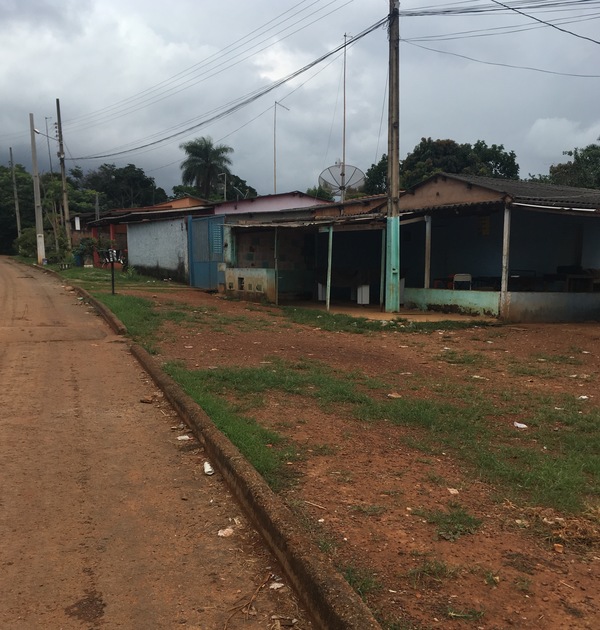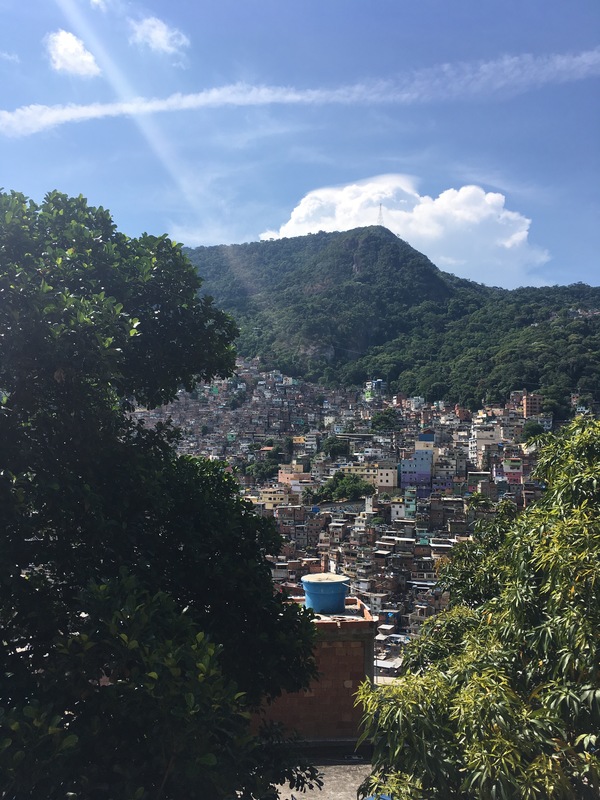Today, our class had the pleasure of visiting the Instituto the Pesquisa Economica Aplicada, or, as it roughly translates to, the Institute of Applied Economic Research (IPEA). The IPEA was originally formed in the 1960s to help the military government organize economic and social policies. It has since gradually transformed into the equivalent of a governmental think tank.
Along with employees of the IPEA, we were able to participate in a roundtable discussion surrounding our course topics of race, development, and inequality. Our class got to describe all that we had observed and gleaned surrounding these issues during our time in Brazil, and the researchers were able to further expand on these topics. Our conversation repeatedly returned to the ideas of social inequality.
"The Champions of Inequalities"
If you have been keeping up with our blog, you understand that Brazil is a highly unequal country. In fact, according to a recent United Nations study, the top ten percent of Brazil's population earns eighty-five times more than the bottom ten percent (Montero, 2005, p. 75). I thought that I had witnessed the most extreme forms of these inequalities while in Rio and Salvador. Then, I encountered Brasília. As it turns out, Brasília is one of the most unequal cities in Brazil. Much of the city is centered around a large lake, and, as our tour guide oft repeated, one shore of the lake is reserved for large, luxurious private homes. If you travel to the other side of the lake, you can find poor communities filled with individuals struggling to make ends meet.
Referring to this general issue, one IPEA employee we met with described Brazil, commenting, "We are the champions of the inequalities of the world in many senses" (IPEA). According to the IPEA employees, many cities within Brazil were actually built to show these separations between the classes. Allegedly, when some cities were first built, officials wanted to abruptly separate the rich and the poor, and thus, contain certain ethnic groups to certain parts of the city (IPEA).
We also learned that the situation caused by such housing segregation is only made worse through lack of quality policy surrounding public transportation. In other words, many cities in Brazil suffer from an unequal distribution of their public transportation systems to the poor areas. Since many underprivileged Brazilians work as maids, childcare providers, etcetera for the upper class (who live farther away from the poor communities due to housing segregation), oftentimes they must spend large amounts of their daily wage just to get to and from work each day. According to author Alfred Montero, this can be a large issue for the poor, because, "Income inequality only deepens absolute poverty levels over time" (2015, p. 77). Thus, if an individual who is already at a monetary disadvantage in life must spend several hours commuting to their job (and thus spend a large chunk of their paycheck) due to poor public transportation policy, how can they be expected to get out of their situation?
Two scholars, Milko Matijascic and Stephen Kay, commented on the relevance of social policy to the well-being of Brazil and its citizens, saying, "the fact that pension coverage, education, and healthcare are considered universal rights and state obligations according to the Brazilian Constitution is a significant accomplishment. Nevertheless, for Brazil, as for all countries, it is important to evaluate social policy as a coherent whole and access the extent to which it achieves its objectives" (Matijascic and Kay, 2014, p. 2). The authors go on to explain that when this is evaluated, they find that many of Brazil's social policies are highly insufficient, and, in many cases, unequally applied. Public transportation can be seen as one of such policies.
According to one of the IPEA workers we talked to, "Public transportation is where all the inequalities come together" (IPEA). Furthermore, poor public policy surrounding public transportation frequently makes it more difficult for people who live in poor communities to leave their communities whether for social, business or leisure reasons. This only serves to increase divides between the classes within society. If the rich never interact with the poor, there remains a blatant lack of empathy and such policy problems never get fixed.
A Final Request
While this is only the "tip of the iceberg," I hope that it gave you just a little more insight into the complex issues of inequalities within Brazilian society. Now, I will leave you with a request: step outside your comfort zone. Interact with those who are of different backgrounds, financial means, political affiliations, lifestyles, ethnicities, religions. If there's one thing I've learned on this trip its that you can never really understand something - whether it be a group of people, a religion, or something else entirely- until you have interacted with it. Too many divides like the one discussed above are caused and maintained by a lack of understanding. In our current political state, there is nothing we could use more than a little interaction with those who are unlike us, and through that, maybe a little understanding.
- IPEA. ( 23 January 2017). Sharing Perspectives on Development, Inequality, and Race. Brasilia, Brazil.
- Matijascic, Milko, Stephen Kay. (2014). Understanding the Brazilian social policy model: Myths. Milestones and Dynamic Social Security. International Security Association.
- Montero, Alfred P. (2005). Brazilian Politics. Malden, MA: Polity Press.





